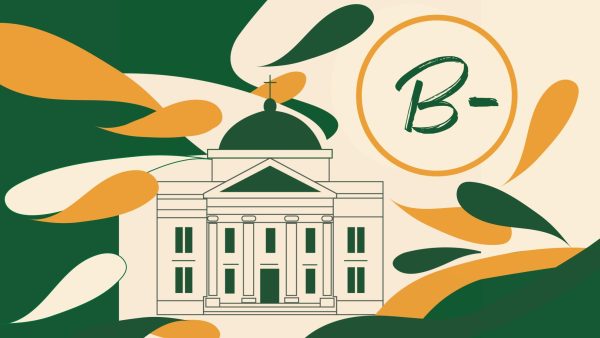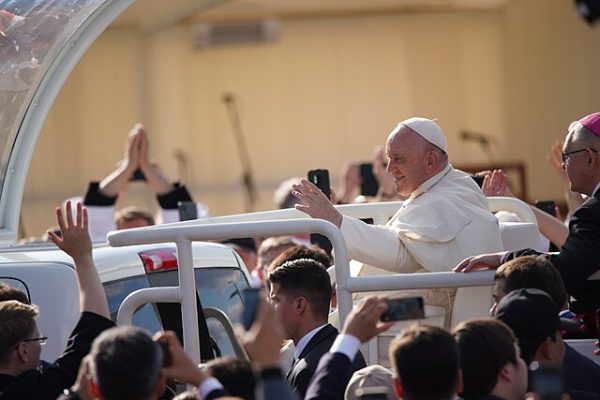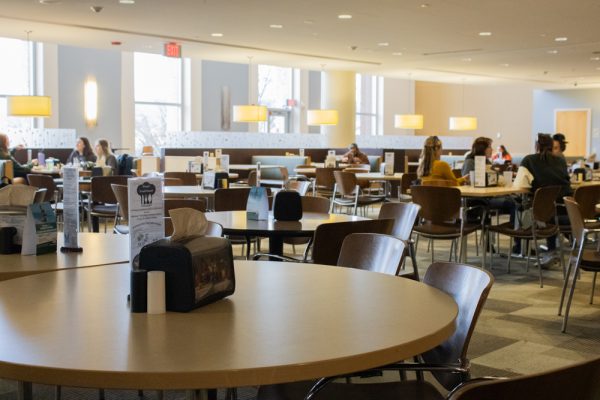Marywood offered faculty voluntary separation packages
Photo credit/ Sabrina Resuta
Marywood administration has offered voluntary separation packages to faculty members to realign finances.
The Marywood administration offered a voluntary separation offer (VSO) to any full-time faculty member with more than three years of service at the university.
VSOs are a commonly used method of financial reassessment and adjustment by companies and institutions, according to university officials. With a projected enrollment cliff coming within the next few years, universities nationwide are trying to think strategically, especially in terms of financial health.
“[The VSO] allows the university to align operating costs with our strategic investments, priorities and goals so that we can continue to provide our students with the in-demand programs they seek while maintaining the academic excellence and superior student experience that is part of our mission,” Vice President for Finance and Administration Bill McDonald explained.
Faculty members had 45-days to express their interest in taking the offer and had the opportunity to meet with the Human Resources Office to discuss their options.
This is not the first time the university has offered voluntary separation packages. Two rounds of VSOs were offered to faculty members last year.
According to a President’s Memo released in October 2022, the first set of VSOs were offered to 30 members of faculty and staff during the Spring 2022 semester. The results of the first VSO was “helpful, but minimal.” A second VSO was offered to all tenured faculty. The offer was limited to 15 individuals and only five faculty members accepted it, according to a President’s memo released in December 2022.
The most recent round of offers was also limited to 15 full-time faculty members.
A President’s memo released on Jan. 4 said if there are still positions that need to be eliminated, further faculty members will be informed of this in compliance with the Faculty Handbook guidelines.
Those guidelines state that first-year faculty will be notified of non-reappointment to their position no later than March 1, meaning that after the completion of the current spring semester, they will not receive a contract for the next academic year.
Faculty members in their second year of service who were not reappointed would have been notified no later than Dec. 15 of last year.
Faculty with two or more years of service who will not be reappointed must be notified “at least twelve months before the expiration of an appointment” according to the Faculty Handbook.
At the time of publication, members of the administration would not confirm how many faculty accepted the most recent VSO offer nor how many first year faculty would not be reappointed next year. According to Associate Provost Leslie Christianson, “the university will determine how best to inform the community” about both the results of the VSO and any non-reappointed first-year faculty.
Dean of Professional Studies James Sullivan said the VSOs are not an indication of financial trouble, but rather a proactive approach to maintain financial stability for years to come.
“The university’s offer is really an indication that it’s really on top of its oversight; of its fiduciary responsibility to manage its funds in a healthy, prudent way,” said Sullivan.
While the VSO was intended to improve the financial health of the institution, it has been a challenging and complicated process.
Faculty members who decide to accept a VSO but wish to stay within academia may face challenges.
“If somebody was interested in the VSO, say who wasn’t at the point where they could retire, it’s not like they could rely upon the idea that there would be another faculty position out there for them to move into,” Professor of Social Science Dr. Adam Shprintzen explained.
Most universities start the hiring process of new faculty members in the fall, which would make it difficult for professors to re-enter the job market next fall should they accept the VSO.
“Being able to recognize that this isn’t just a job for us, it’s so much more, that is something that I think we need to be able to think about and deal with as a part of this process,” said Shprintzen.
It is unclear how the VSOs will affect academic programs.
Provost and Vice President of Academic Affairs Dr. Christina Clark could not be reached for comment as she is on sabbatical this semester. University President Sr. Mary Persico, I.H.M., Ed.D, is acting as Chief Academic Officer for the rest of the academic year.
Contact the writers: [email protected], [email protected]
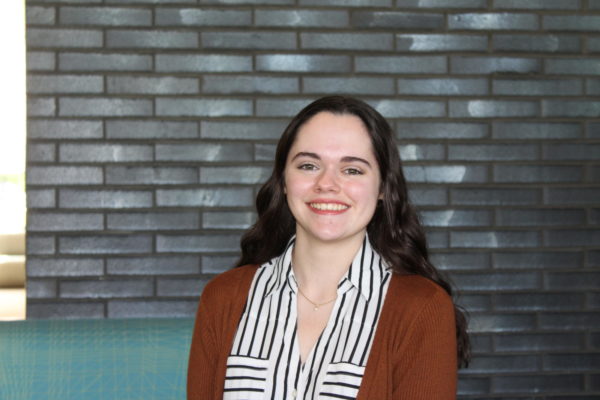
Madeline Adams is a junior multimedia communications major and is the Editor in Chief for The Wood Word. She is a DJ for Marywood's own, VMFM 91.7, and...
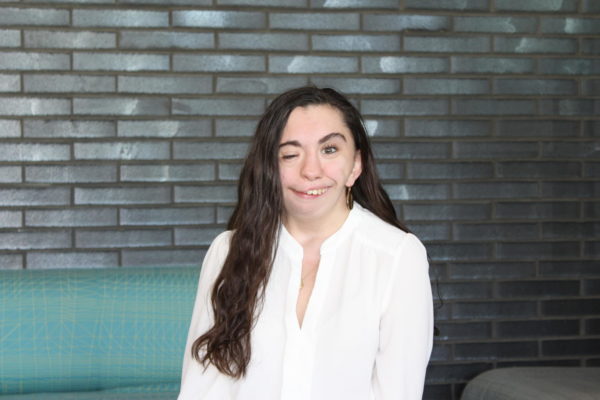
Elizabeth Adams is a junior, Multi Communications major and the Managing Editor for The Wood Word. In addition to being an active member in the communications...
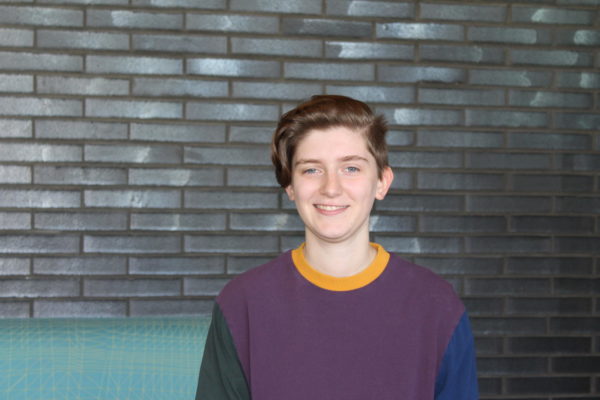
Sabrina Resuta is a junior graphic design major and the lead designer for the Wood Word. Sabrina is also a part of Zeta Omicron, Marywood’s art honor...





